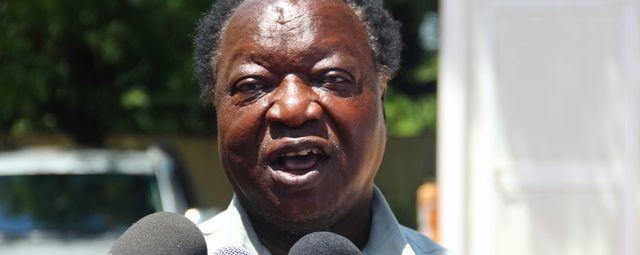South Sudan’s Constitutional Review Commission will provide input at the peace negotiations in Addis Ababa when the talks reopen later this month. Their involvement has been welcomed by government delegation.
Mediators of the Inter-Governmental Authority on Development (IGAD) invited the commission to take part given that the political talks in Addis Ababa may have major constitutional implications.
The 9 May agreement between the opposition and government committed the two sides to “participate in negotiations on transitional governance [and] the permanent constitution.”
South Sudan has no permanent constitution but only a transitional constitution passed by the legislature at independence in 2011. A commission set up to run a constitution-making process had made little headway before the outbreak of civil conflict in the country in December 2013.
South Sudan’s Government Chief Negotiator in Addis Ababa, Nhial Deng Nhial, welcomed engagement between his negotiation team and the National Constitution Review Commission (NCRC) particularly on the issue of permanent constitution which has yet to be discussing in the ongoing coming talks.
Nhial noted that NCRC had been given a chance by the IGAD mediators in the next round of the talks to reflect their inputs and views on future governance.
“As we are all aware that there is a national constitution review process going on and has been spearhead by the NCRC, therefore we cannot discuss the issue of permanent constitution process in isolation of the efforts which had already been going on as mandated by our (transitional) constitution,” he said.
Speaking on Friday at the premises of the commission, Nhial noted that the next round will not involve only the government and opposition, but also will include other political forces and civil societ to form a broad base for dialogue.
For his part, Prof. Akolda M. Tier, the chairman of the NCRC said the commission will be neutral on what is the best solution in the ongoing talks.
“There is no doubt that the current conflict which started in December has impacted on us in the commission. It is preventing us from conducting seminars and workshops in the states as models of consultation with the ordinary people of South Sudan,” he said.
Akolda cited that the agreement which the government signed with David Yau Yau, which gave Greater Pibor its own administrative authority, as having constitutional implications.
He appeared concerned that that the ongoing Addis talks not end as the Yau Yau talks ended, suggesting that the approach used in that case was not a good constitutional solution.
Yau Yau’s agreement put Pibor County and neighboring Pochalla County under the direct authority of the presidency, effectively giving it autonomy from the state government to which it hitherto had belonged.
Photo: Prof. Akolda M. Tier, the chairman of the NCRC
To contact Radio Tamazuj with information, use the contact form on our website. To join the discussion, follow us on Facebook.




